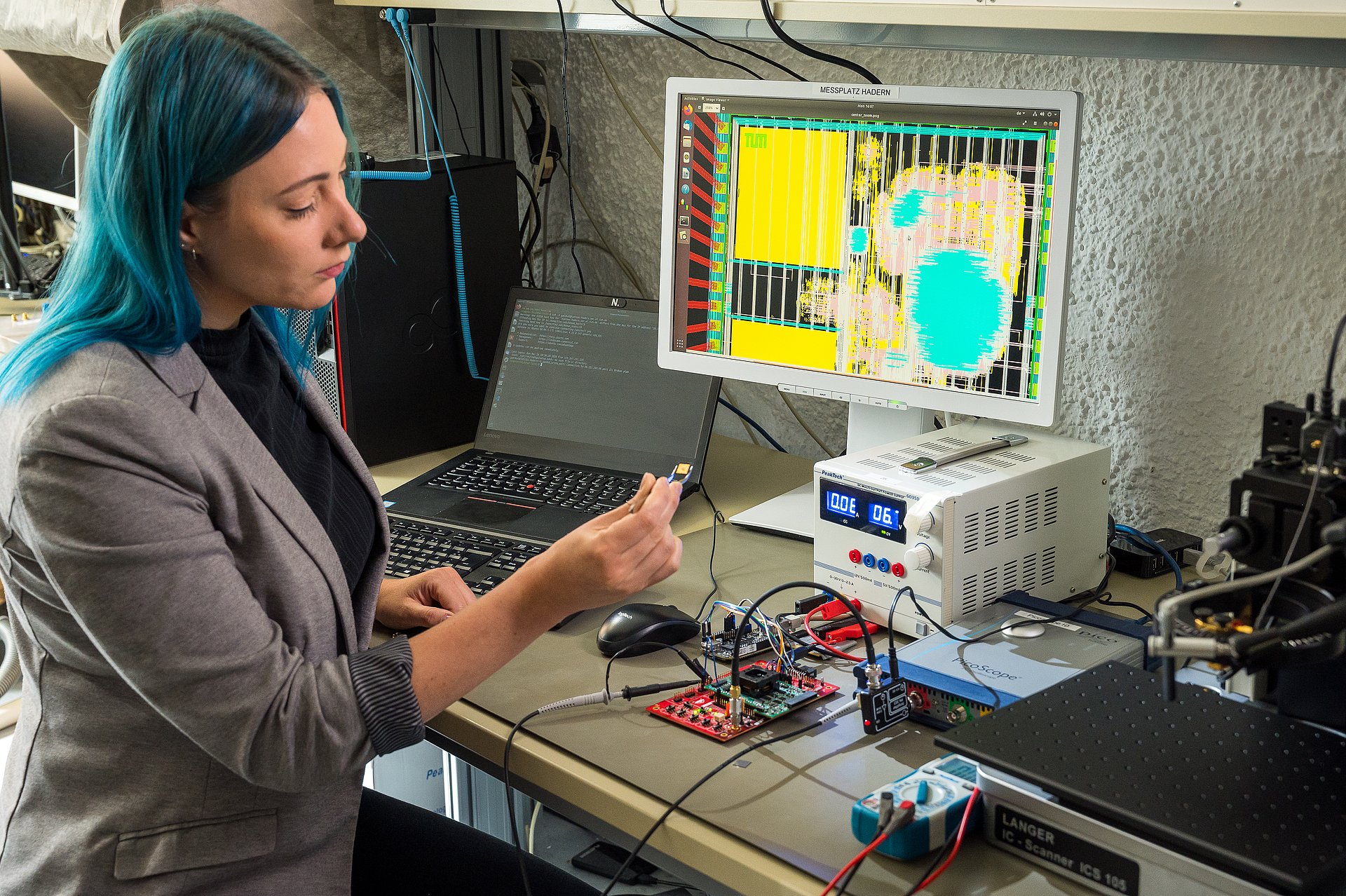The Technical University of Munich (TUM) and Google are driving forward research into cybersecurity and artificial intelligence (AI). Thanks to funding from Google, seven new research projects are being launched at TUM to investigate critical questions at the interface of cybersecurity and AI.
 Astrid Eckert / TUM
Astrid Eckert / TUM How can AI be used to moderate problematic content, such as hate speech online? What are the data protection risks of general-purpose AI models, and how are they perceived in Europe? Moreover, what are the patterns of cyberattacks on large language models (LLMs)? The work in the seven projects is led by TUM professors and implemented by their teams. Experts from Google are on hand to advise them. Seven new positions for doctoral students will also be created as part of the funding.
About the seven research projects
- Secure compilation of high-performance concurrency models (Prof. Pramod Bhatotia): How do we ensure that software customized for parallel computing architectures is secure and free of vulnerabilities?
- Large Language Models (LLMs) for the analysis of program code with regard to security vulnerabilities and data protection violations (Prof. Claudia Eckert): How can novel, LLM-based, automated methods be used to identify privacy and security vulnerabilities in very large codebases more efficiently and precisely?
- Probe positioning (Prof. Georg Sigl): Hardware can reveal information that can be spied on by an electromagnetic probe. The positioning of the probe is an open problem. How can AI help to make side-channel measurements more reproducible and thus make the hardware more secure?
- Side-channel analysis of post-quantum cryptography (Prof. Georg Sigl): How to automatically detect all side-channel leaks of implementations of quantum computer-resistant cryptography?
- Understanding attitudes and promoting acceptance of AI-assisted approaches to content moderation (Prof. Jens Großklags): LLMs can be used to automate content moderation to detect hate speech, sexism, or cyberbullying online. However, how effective are such AI-driven approaches, and how do human users perceive them?
- Data protection risks of general AI systems: Stakeholder perspectives in Europe (Prof. Florian Matthes). What data protection risks exist in new general-purpose AI (GPAI) systems like LLMs? How are these risks perceived in Europe?
- Understanding attacks on language models (Prof. Stephan Günnemann): LLMs can be attacked - for example, by malicious requests to reveal private user data. We want to better understand how such attacks work in general, what triggers them in LLMs, and how they can be prevented.
AI permeates our everyday lives
Prof. Thomas F. Hofmann, TUM President: "AI has begun to permeate our everyday lives. That is why the further development of AI technologies is crucial. These technologies must be as reliable and safe as possible for this to be socially acceptable. Together with Google, we are driving these developments forward."
Dr. Wieland Holfelder, Vice President Engineering & Site Lead Google Munich: "Issues relating to cyber security and artificial intelligence are becoming increasingly intertwined. How can we make AI as secure as possible? And how can AI help to better protect our digital infrastructure? These are key questions of our time, not least at the upcoming Munich Security Conference. We look forward to working with TUM to further advance research on these key topics."
Cooperation with Google
TUM and Google are deepening their partnership through new contract research in the field of cybersecurity and AI. In 2018, Google became the first non-European company to become an Excellence Partner of the university. In addition, Google has supported TUM initiatives since 2022 that promote women on their career paths in the STEM subjects of mathematics, computer science, natural sciences, and technology. In February 2023, TUM launched the TUM Innovation Network on cybersecurity using a non-earmarked donation from Google. Google has also established its global Safety Engineering Center in Munich.






